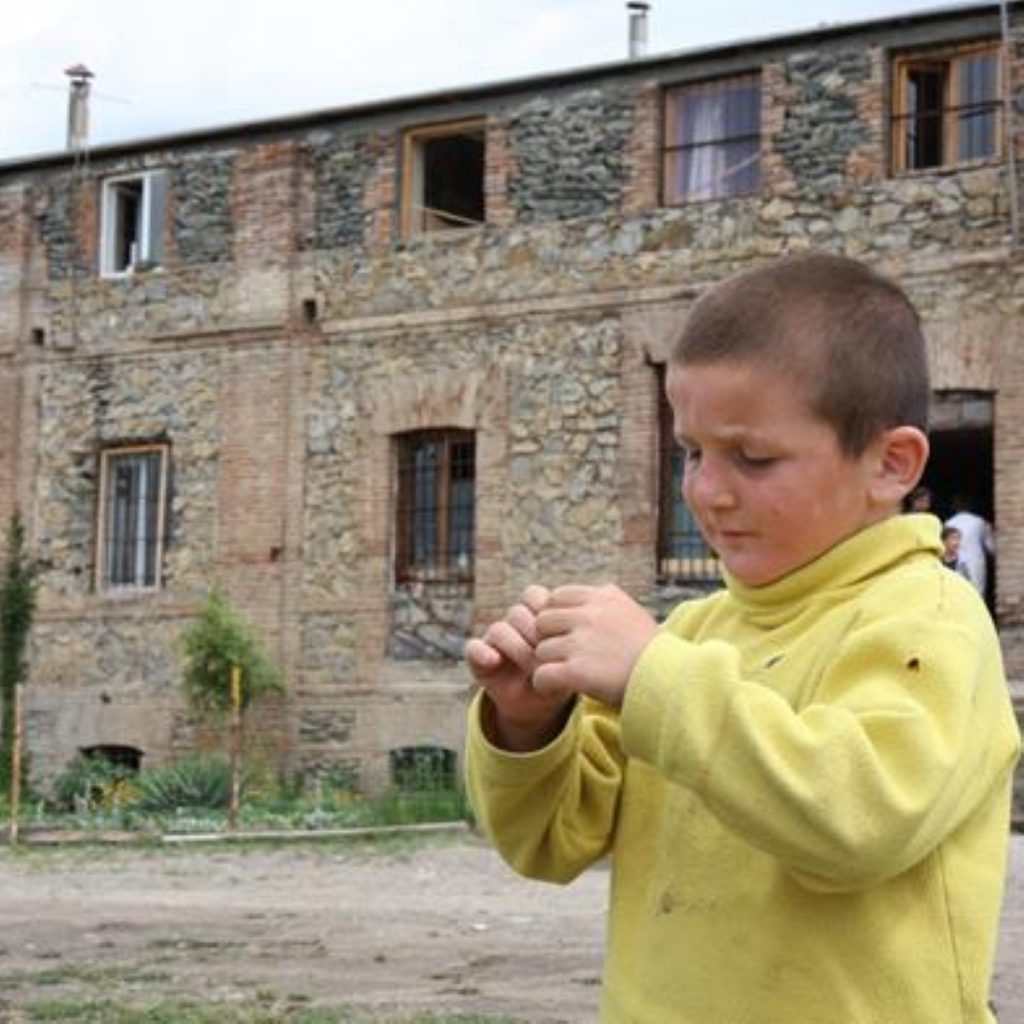One year on: Has London given up on Georgia?
By Alex Stevenson
Human rights group Amnesty International has called on the British government to be a “force for moderation” in Georgia, as it renews its calls for a war crimes investigation.
The Foreign Office responded by agreeing that “those suspected of war crimes should face judicial proceedings”, but called for an international fact-finding mission to complete its work.
August 7th 2008 saw the outbreak of the conflict between Georgia and Russia, triggered after a dispute over the Georgian breakaway province of South Ossetia escalated.


Twelve months later today’s report from Amnesty says 30,000 of the estimated 138,000 ethnic Georgians displaced by fighting have been unable to return to their homes in South Ossetia.
New urban and rural settlements have been established to house 18,000 people, provided with basic facilities and furniture, but they do not have easy access to hospitals, schools and places of work.
Anger at potential war crimes during the conflict continues to simmer on, it warns. Both Russia and Georgian forces face allegations of not doing enough to protect civilians.
No one has been held accountable for war crimes – partly because obstruction has undermined international monitoring missions in Georgia.
Amnesty International UK’s director Kate Allen called on Gordon Brown to “stay engaged” with the process after Foreign Office minister Glenys Kinnock’s recent visit to Tbilisi.
“We were all horrified when this dreadful conflict broke out last summer and it’s important that the international community isn’t caught off guard by another lethal clash between Russia and Georgia,” she told politics.co.uk.
“The important thing is that the UK is a force for moderation in this turbulent affair.
“The government should be calling for reinforced monitoring on the ground, the safe voluntary return of displaced people and, vitally, renewed efforts on both sides to ensure that suspected war criminals are brought to justice.”
Amnesty wants all parties to the conflict to allow probes investigating whether their forces broke international law.
Foreign secretary David Miliband addressed the situation in Georgia in a blog last week, in which he admitted “there remains a lot to do to repair the damage”.
“Our support for Georgia’s rights is clear. Glenys Kinnock made this clear when she visited Tbilisi in June. I applaud the EU’s decision this week to extend the EU Monitoring Mission in Georgia,” he wrote.
“I very much welcome [US] Vice President Biden’s reaffirmation during his recent visit to Tbilisi of US commitment to a democratic Georgia – consolidation of the progress made so far is the clearest path towards durable peace.”
A Foreign Office spokesman said London backed calls for war crimes probes. But it said no action should be taken immediately because the Independent International Fact-Finding Mission’s work is ongoing.
The Tagliavini report, as it is also known, will tackle human rights and international humanitarian law issues as part of its remit.
Conservative MP Mark Pritchard, chair of the all-party group for Russia, agreed that improved scrutiny and monitoring on the ground was a priority. He said this would “ensure there is no accidental or deliberate backsliding into renewed conflict”.
At present tensions are especially high between Georgia and Russia. And after Russia blocked renewal of the UN and OSCE monitoring missions, international monitoring currently relies on the EU mission.
Mr Pritchard added: “Both sides need to ensure that those people affected and displaced by last year’s fighting are given improved access to housing, healthcare, and humanitarian supplies.”
Labour MP Bruce George, chair of the equivalent group for Georgia, warned that Georgian prime minister Mikheil Saakashvili faced competing pressures in his rush to reform.
Mr Saakashvili lost considerable international credibility after acting first against Russia. His pro-western stance and attempts to secure membership of Nato require rapid progress on the human rights reforms, Mr George explained, but quick change is limited by the situation on the ground.
“It seems to me when a country’s been invaded, when it has a sworn enemy to the north and having seen 20 per cent of their land taken away from them, I’m afraid you don’t judge them by the standards of the rest of us,” he said.
“I want to, but you have to realise you’re not in western Europe.”
London has made clear it has not forgotten the internally displaced persons still suffering in Georgia.
A Foreign Office spokesman said: “We continue to encourage all parties to make the safe and voluntary return of IDPs a priority as part of broader efforts to reach a comprehensive and negotiated peace settlement.”
Georgia’s population, at five million, is roughly 28 times smaller than that of Russia.
After 250 years of Russian and Soviet control it suffered a civil war in the early 1990s, leading to the breakup of its South Ossetia and Abkhazia provinces.

